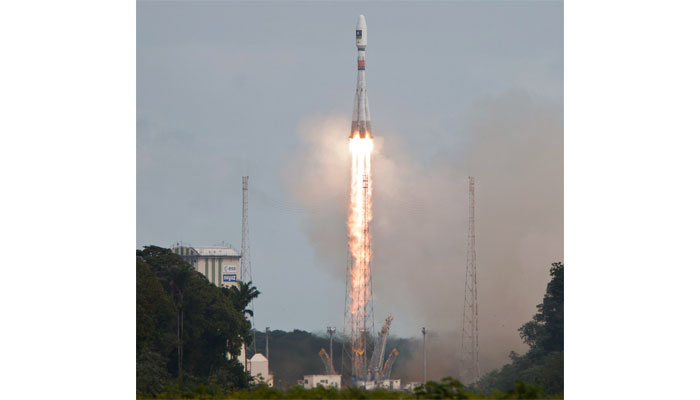Russian-built Soyuz taking off from Europe's Kourou space centre, in French Guiana. Two satellites for Europe's rival to GPS, the Galileo navigation system, were lifted into space from French Guiana on August 22
AFP
Two European Galileo satellites launched by a Russian-built rocket on Friday from French Guiana have not reached their intended orbit, launch firm Arianespace said Saturday.
"Observations taken after the separation of the satellites from the Soyuz VS09 (rocket) for the Galileo Mission show a gap between the orbit achieved and that which was planned," the company said in a statement.
"They have been placed on a lower orbit than expected. Teams are studying the impact this could have on the satellites," it added.
Arianespace declined to comment on whether their trajectories can be corrected.
The satellites Doresa and Milena took off from the Kourou space centre in French Guiana at 1227 GMT Friday after a 24-hour delay because of poor weather.
They separated from the mothership to enter into free-flight orbit just under four hours after launch.
"These two satellites are the first of a new type of satellite that are fully owned by the EU, a step towards a fully fledged European-owned satellite navigation system," the European Commission, which funds the project, said Friday.
The 5.4 billion euro ($7.2 billion) Galileo constellation is designed as an alternative to the existing US Global Positioning System (GPS) and Russia's Glonass, and will have search and rescue capabilities.
Four Galileo satellites have been launched previously -- one pair in October 2011 and another a year later.

